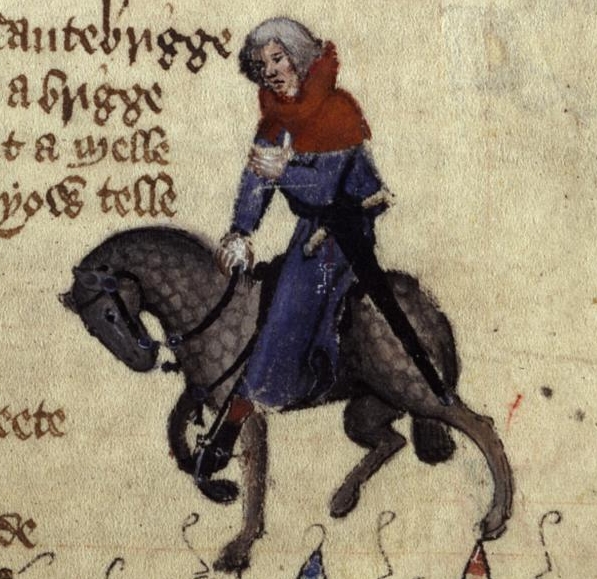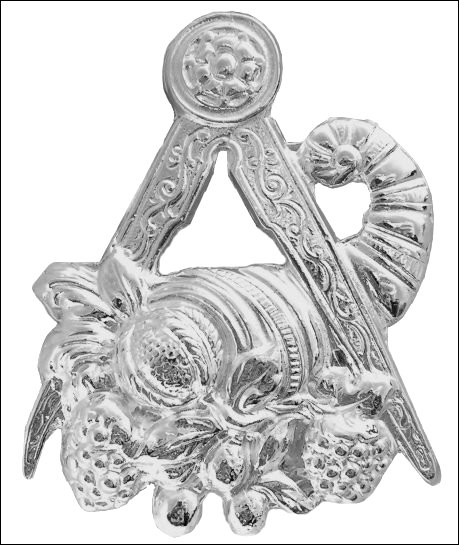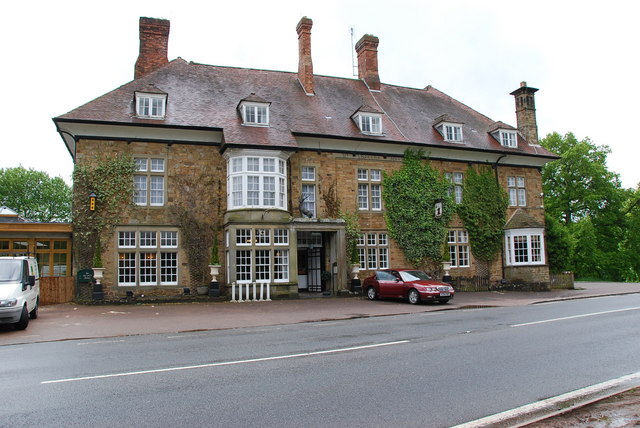|
Reeve (England)
In Anglo-Saxon England, a reeve (Old English: ) was an administrative official serving the king or a lesser lord in a variety of roles. After the Norman Conquest, it was an office held by a man of lower rank, appointed as manager of a manor and overseer of the peasants. In this later role, historian H. R. Loyn observes, "he is the earliest English specialist in estate management." Types ''Reeve'' is a general term that could refer to a variety of administrative officials. Royal reeves worked for the king, but nobles and bishops also employed reeves. Some reeves served as estate managers, while others held positions in towns and boroughs. Royal reeves In the late 7th and early 8th centuries, royal reeves oversaw royal estates. By the 10th century, royal reeves performed a variety duties in shires and hundreds. They enforced legislation and royal decrees. They presided over local courts, carried out police functions, and witnessed sales. A royal reeve's authority often ... [...More Info...] [...Related Items...] OR: [Wikipedia] [Google] [Baidu] |
Anglo-Saxon England
Anglo-Saxon England or early medieval England covers the period from the end of Roman Empire, Roman imperial rule in Roman Britain, Britain in the 5th century until the Norman Conquest in 1066. Compared to modern England, the territory of the Anglo-Saxons stretched north to present day Lothian in southeastern Scotland, whereas it did not initially include western areas of England such as Cornwall, Herefordshire, Shropshire, Cheshire, Lancashire, and Cumbria. The 5th and 6th centuries involved the collapse of economic networks and political structures and also saw a radical change to a new Anglo-Saxon language and culture. This change was driven by movements of peoples as well as changes which were happening in both northern Gaul and the North Sea coast of what is now Germany and the Netherlands. The Anglo-Saxon language, also known as Old English, was a close relative of languages spoken in the latter regions, and genetic studies have confirmed that there was significant migrat ... [...More Info...] [...Related Items...] OR: [Wikipedia] [Google] [Baidu] |
Steward (office)
A steward is an official who is appointed by the legal ruling monarch to represent them in a country and who may have a mandate to govern it in their name; in the latter case, it is synonymous with the position of regent, vicegerent, viceroy, Luogotenente, king's lieutenant (for Romance languages), governor, or deputy (the Roman ''Roman governor, rector'', ''prefect, praefectus'', or ''vicarius''). Etymology From Old English ''stíweard, stiȝweard'', from ''stiȝ'' "hall, household" + ''weard'' "wikt:warden, warden, keeper"; corresponding to Dutch language, Dutch: ''stadhouder'', German language, German ''Statthalter'' "place holder", a Germanic parallel to French ''lieutenant''. The Old English term ''stíweard'' is attested from the 11th century. Its first element is most probably ''stiȝ-'' "house, hall" (attested only in composition; its cognate ''stiȝu'' is the ancestor of Modern English ''sty''). Old French and Old Norse ''stívarðr'' are adopted from the Old English. T ... [...More Info...] [...Related Items...] OR: [Wikipedia] [Google] [Baidu] |
Verderer
Verderers are forestry officials in England who deal with common land in certain former royal hunting areas which are the property of the Crown. The office was developed in the Middle Ages to administer forest law on behalf of the King. Verderers investigated and recorded minor offences such as the taking of venison and the illegal cutting of woodland, and dealt with the day-to-day forest administration. In the modern era, verderers are still to be found in the New Forest, the Forest of Dean, and Epping Forest, where they serve to protect commoning practices, and conserve the traditional landscape and wildlife. Origins Verderers were originally part of the ancient judicial and administrative hierarchy of the vast areas of English forests and Royal Forests set aside by William the Conqueror for hunting. The title Verderer comes from the Norman word ‘vert’ meaning green and referring to woodland. These forests were divided into provinces each having a Chief Justice who travel ... [...More Info...] [...Related Items...] OR: [Wikipedia] [Google] [Baidu] |
Reeve (Canada)
In many countries, a mayor is the highest-ranking official in a municipal government such as that of a city or a town. Worldwide, there is a wide variance in local laws and customs regarding the powers and responsibilities of a mayor as well as the means by which a mayor is elected or otherwise mandated. Depending on the system chosen, a mayor may be the chief executive officer of the municipal government, may simply chair a multi-member governing body with little or no independent power, or may play a solely ceremonial role. A mayor's duties and responsibilities may be to appoint and oversee municipal managers and employees, provide basic governmental services to constituents, and execute the laws and ordinances passed by a municipal governing body (or mandated by a state, territorial or national governing body). Options for selection of a mayor include direct election by the public, or selection by an elected governing council or board. The term ''mayor'' shares a linguistic ... [...More Info...] [...Related Items...] OR: [Wikipedia] [Google] [Baidu] |
The Reeve's Tale
"The Reeve's Tale" is the third story told in Geoffrey Chaucer's ''The Canterbury Tales''. The reeve, named Oswald in the text, is the manager of a large estate who reaped incredible profits for his master and himself. He is described in the ''Tales'' as skinny, bad-tempered, and old; his hair is closely cropped reflecting his social status as a serf. His sword is rusty while he rides a fine gray horse called Scot. The Reeve is a skilled carpenter, a profession mocked in the previous " Miller's Tale". Oswald responds with a tale that mocks the Miller's profession. The tale is based on a popular fabliau (also the source of the Sixth Story of the Ninth Day of ''The Decameron'') of the period with many different versions, the "cradle-trick". Chaucer improves on his sources with his detailed characterisation and sly humour linking the act of grinding corn with sex. The northeastern accent of the two clerks is also the earliest surviving attempt in English to record a dialect fro ... [...More Info...] [...Related Items...] OR: [Wikipedia] [Google] [Baidu] |
The Canterbury Tales
''The Canterbury Tales'' () is a collection of 24 stories written in Middle English by Geoffrey Chaucer between 1387 and 1400. The book presents the tales, which are mostly written in verse, as part of a fictional storytelling contest held by a group of pilgrims travelling together from London to Canterbury to visit the shrine of Saint Thomas Becket at Canterbury Cathedral. The ''Tales'' are widely regarded as Chaucer's '' magnum opus''. They had a major effect upon English literature and may have been responsible for the popularisation of the English vernacular in mainstream literature, as opposed to French or Latin. English had, however, been used as a literary language centuries before Chaucer's time, and several of Chaucer's contemporaries— John Gower, William Langland, the Gawain Poet, and Julian of Norwich—also wrote major literary works in English. It is unclear to what extent Chaucer was seminal in this evolution of literary preference. ''The Canterbury Tale ... [...More Info...] [...Related Items...] OR: [Wikipedia] [Google] [Baidu] |
Chaucer
Geoffrey Chaucer ( ; – 25 October 1400) was an English poet, author, and civil servant best known for '' The Canterbury Tales''. He has been called the "father of English literature", or, alternatively, the "father of English poetry". He was the first writer to be buried in what has since come to be called Poets' Corner, in Westminster Abbey. Chaucer also gained fame as a philosopher and astronomer, composing the scientific '' A Treatise on the Astrolabe'' for his 10-year-old son, Lewis. He maintained a career in public service as a bureaucrat, courtier, diplomat, and member of parliament, having been elected as shire knight for Kent. Among Chaucer's many other works are '' The Book of the Duchess'', ''The House of Fame'', '' The Legend of Good Women'', ''Troilus and Criseyde'', and '' Parlement of Foules''. He is seen as crucial in legitimising the literary use of Middle English when the dominant literary languages in England were still Anglo-Norman French and Latin ... [...More Info...] [...Related Items...] OR: [Wikipedia] [Google] [Baidu] |
Canterbury
Canterbury (, ) is a City status in the United Kingdom, city and UNESCO World Heritage Site, in the county of Kent, England; it was a county borough until 1974. It lies on the River Stour, Kent, River Stour. The city has a mild oceanic climate. Canterbury is a popular tourist destination, with the city's economy heavily reliant upon tourism, alongside higher education and retail. As of 2011, the city's population was over 55,000, including a substantial number of students and one of the highest student-to-permanent-resident ratios in Britain. The site of the city has been occupied since Paleolithic times and served as the capital of the Celtic Cantiaci and Jutes, Jute Kingdom of Kent. Many historical structures fill the area, including a city wall founded in Roman Britain, Roman times and rebuilt in the 14th century, the Westgate Towers museum, the ruins of St Augustine's Abbey, the Norman Canterbury Castle, and the List of the oldest schools in the world, oldest extant schoo ... [...More Info...] [...Related Items...] OR: [Wikipedia] [Google] [Baidu] |
The Reeve - Ellesmere Chaucer
''The'' is a grammatical article in English, denoting nouns that are already or about to be mentioned, under discussion, implied or otherwise presumed familiar to listeners, readers, or speakers. It is the definite article in English. ''The'' is the most frequently used word in the English language; studies and analyses of texts have found it to account for seven percent of all printed English-language words. It is derived from gendered articles in Old English which combined in Middle English and now has a single form used with nouns of any gender. The word can be used with both singular and plural nouns, and with a noun that starts with any letter. This is different from many other languages, which have different forms of the definite article for different genders or numbers. Pronunciation In most dialects, "the" is pronounced as (with the voiced dental fricative followed by a schwa) when followed by a consonant sound, and as (homophone of the archaic pronoun ''thee' ... [...More Info...] [...Related Items...] OR: [Wikipedia] [Google] [Baidu] |
Michaelmas
Michaelmas ( ; also known as the Feast of Saints Michael, Gabriel, and Raphael, the Feast of the Archangels, or the Feast of Saint Michael and All Angels) is a Christian festival observed in many Western Christian liturgical calendars on 29 September, and on 8 November in the Eastern Christian traditions. Michaelmas has been one of the four quarter days of the English and Irish financial, judicial, and academic year. In the Christian angelology of some traditions, the Archangel Michael is considered as the greatest of all the angels; being particularly honored for defeating the devil in the war in heaven. History The name Michaelmas comes from a shortening of "Michael's Mass", in the same style as Christmas (Christ's Mass) and Candlemas (Candle Mass, the Mass where traditionally the candles to be used throughout the year would be blessed). During the Middle Ages, Michaelmas was celebrated as a Holy Day of Obligation, but this tradition was abolished in the 18th century. ... [...More Info...] [...Related Items...] OR: [Wikipedia] [Google] [Baidu] |
Serf
Serfdom was the status of many peasants under feudalism, specifically relating to manorialism and similar systems. It was a condition of debt bondage and indentured servitude with similarities to and differences from slavery. It developed during late antiquity and the Early Middle Ages in Europe and lasted in some countries until the mid-19th century. Unlike slaves, serfs could not be bought, sold, or traded individually, though they could, depending on the area, be sold together with land. Actual slaves, such as the kholops in Russia, could, by contrast, be traded like regular slaves, abused with no rights over their own bodies, could not leave the land they were bound to, and marry only with their lord's permission. Serfs who occupied a plot of land were required to work for the lord of the manor who owned that land. In return, they were entitled to protection, justice, and the right to cultivate certain fields within the manor to maintain their own subsistence. Serfs wer ... [...More Info...] [...Related Items...] OR: [Wikipedia] [Google] [Baidu] |





